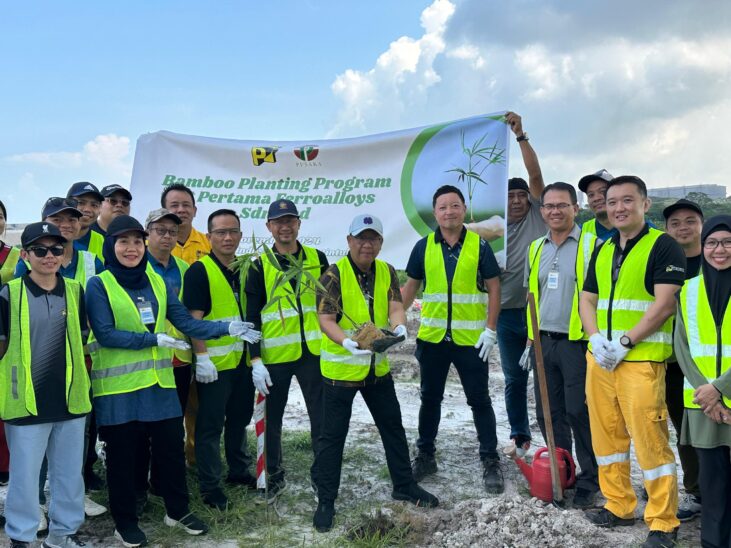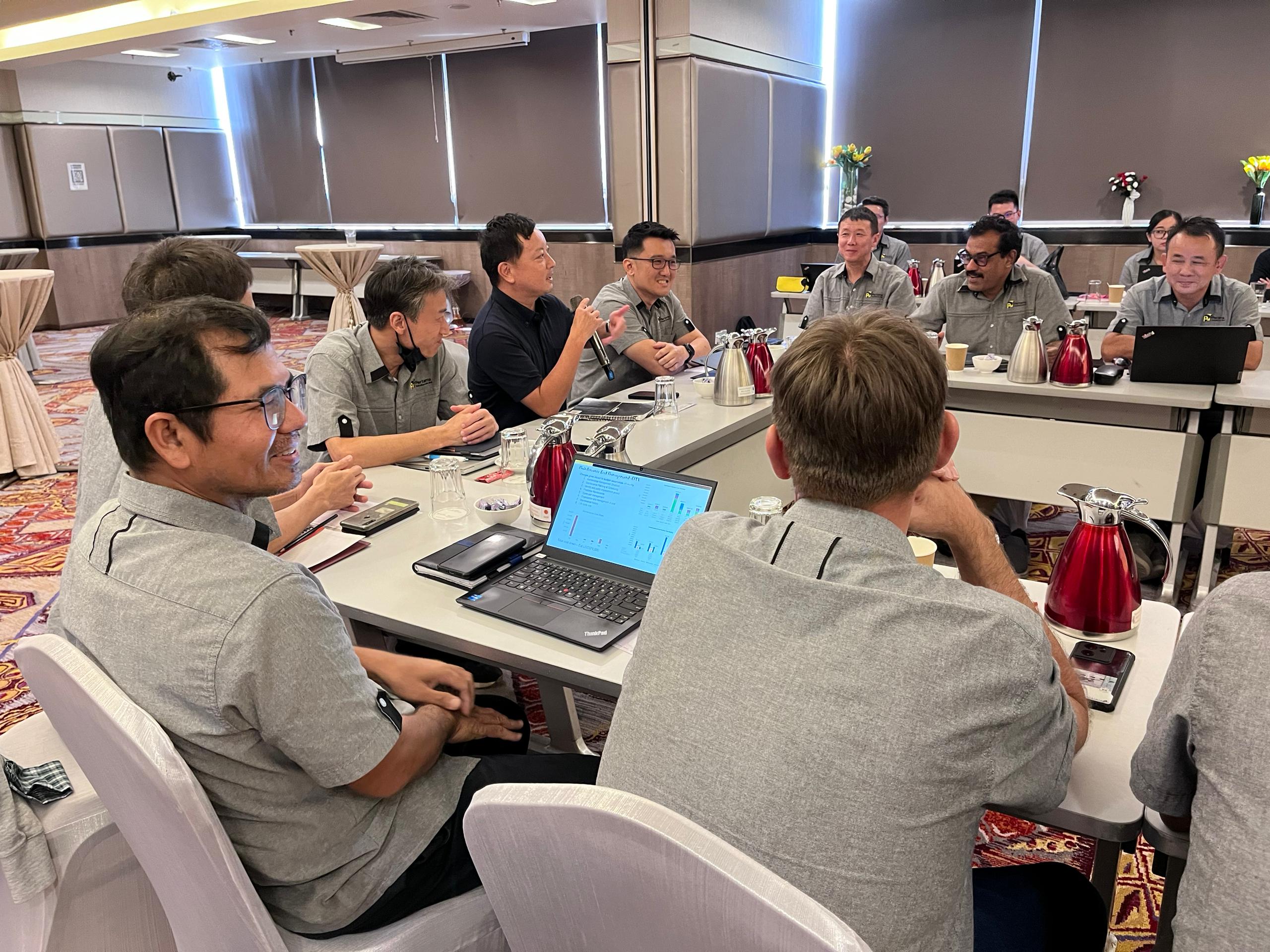Pertama Ferroalloys successfully hosts bamboo planting programme
SAMALAJU, BINTULU (3 NOVEMBER 2024) – Pertama Ferroalloys Sdn Bhd successfully hosted a bamboo planting programme at its facility in Samalaju recently.
According to a press statement, the event was organised in collaboration with the Sarawak Timber Industry Development Corporation (STIDC), the initiative represented an important step towards enhancing sustainability within the ferroalloy industry.
STIDC general manager Zainal Abidin Abdullah, assistant general manager Hamzah Morshidi, Pertama Ferroalloys general manager Yuki Nakamura, and assistant deputy general manager Jack Tan jointly officiated at the event.
In his welcoming remarks, Nakamura highlighted the reliance on materials such as wood charcoal and cork, but also acknowledged their efforts to minimise their environmental footprint.
Despite producing 220,000 tonnes of ferroalloys annually, their commitment to hydroelectric power allowed them to remain among the lowest carbon (CO2) emitting ferroalloys producers globally.
Central to the event was the introduction of the bamboo plantation project, an initiative aimed to address CO2 absorption and reduce reliance on cork.
Nakamura expressed urgency in implementing the project and sought support for commercial-scale plantations.
“Bamboo offers a sustainable solution, and this project can become an economic booster for Sarawak,” he said.
Meanwhile, Zainal Abidin congratulated Pertama Ferroalloys on this initiative, building upon a memorandum of understanding (MoU) signed in November last year.
He emphasised the project’s role in greening the industrial area, providing sustainable raw materials and contributing to global sustainability efforts.
He elaborated on plans for research and development to optimise bamboo growth and its potential to replace less sustainable materials.
“This project benefits both Pertama Ferroalloys and the community.
“By cultivating bamboo, we can reduce operating costs and foster environmental responsibility across Sarawak’s industries,” he added.
The bamboo planting programme marks a pivotal moment in Sarawak’s industrial landscape.
With strong support from STIDC and the government, this initiative holds the potential to revolutionise practices in the region.
The programme signifies not just a new planting initiative, but a collective commitment to a sustainable industrial ecosystem for Sarawak – one that benefits both the environment and its people.







